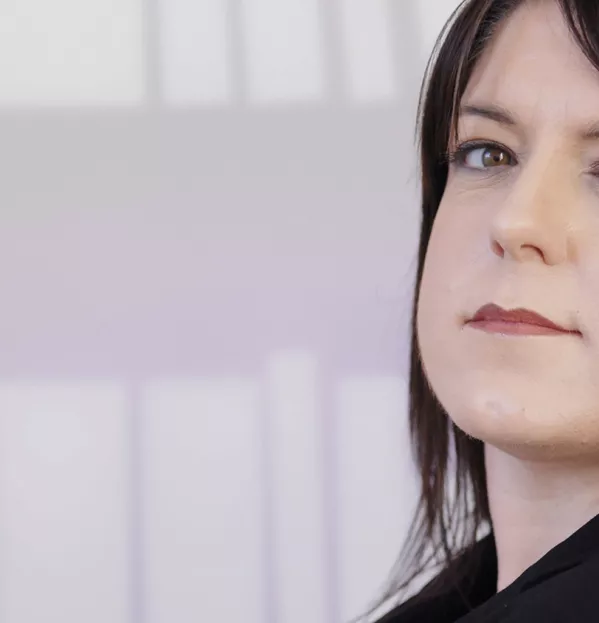‘Let’s banish these toxic perceptions of teenagers’

It’s hard to imagine a more upbeat cheerleader for teenagers than Louise Macdonald. The chief executive of the Young Scot charity peppers Twitter with sunny epithets about the joys of youthful zeal, with a side order of chivvying encouragement for teens who might struggle to see their lives in a positive light.
A quick check of tweets in the previous few days confirms that impression: on exam results day, she’s reminding her followers to “be kind to young people every day” - especially those not getting the results they wanted - and a little later, she’s breezily linking to a blog post by a Young Scot trainee and saying how much she’s learned from him.
The underside of Macdonald’s disposition is that it pains her that her optimism seems to be constantly at odds with many other adults who routinely portray teenagers as miscreants - negativity that she fears undermines the fragile confidence of adolescents and, consequently, might undermine their life’s ambitions.
Macdonald, whose charity’s aim is to help young people become more “confident, informed and active”, wants to see the emergence of a movement that banishes damaging stereotypes about teenagers, with teachers at the vanguard. The catalyst, she hopes, will be the Year of Young People, Scotland’s attempt - through myriad projects and events taking place throughout 2018 - to celebrate and inspire people, and encourage a more positive perception of their generation.
“We hear often from young people that they feel they are judged harshly, particularly in the media, and it feels unfair to them,” says Macdonald, who is one of the headline speakers at next month’s Scottish Learning Festival in Glasgow.
“There is absolutely a perception that teenagers are kind of loud and troublesome and all the rest of it - the common shorthand for young people as ‘teenage tearaways’ and so on. As a society, we really need to get to grips with this.”
‘Be nicer and kinder’
During preparations for the Year of Young People, Macdonald says one view kept coming up in feedback from teenagers: “They wanted it to be a year where adults were nicer and kinder to them.”
She sees this as a challenge for all adults, including those working in schools. “Where are the adults speaking up for young people?” asks Macdonald. “I really hope that this year, they will say, ‘Look, our young people are amazing.’”
Young Scot provides the long-established discount card that carries the charity’s name but also works on citizenship projects with people aged 11-26. Macdonald’s long experience of working with this age group - she has been Young Scot chief executive for 10 years - has made her ponder why children are lionised but teenagers are demonised, and why there is a “collective amnesia” about what it’s like to be a teenager.
Teachers, she hopes, can provide an antidote to toxic perceptions of the teenage years.
“Teachers have a powerful role, particularly for teenagers, in terms of helping and supporting them and giving them that sense of self-belief, worth and value,” she says. “What an incredible power to have as a teacher, to have that in your gift of being able to influence the lives of young people every single day - their role couldn’t be more important.”
And she has a message for the newly qualified teachers who will soon be pouring into schools across Scotland, and whose nerves are no doubt jangling at the prospect.
“Even when there are tough days, when the work’s piling up and so on, hold on to the knowledge of those moments when you know you are absolutely making a difference in the lives of young people,” she says.
Macdonald freely utters a phrase that doesn’t seem to be heard so often these days: “I’m a Curriculum for Excellence fan,” she says.
While noting that there have been “concerns around implementation”, she says that CfE has ushered in “really positive” developments such as personalised learning, as well as a broader definition of what education entails.
She hopes that CfE comes to mark a decisive end to a “one-size-fits-all approach that we push you through, the days of a factory-style education”. She points to “incredible improvement” in the understanding of what makes young people tick, as well as great strides taken in the education of young carers and children with experience of care.
Macdonald is also excited about the growing popularity of Foundation Apprenticeships - which provide work-based learning for senior secondary pupils - but cautions that there is a “way to go” in expanding the range of post-school options presented to students. She often hears from pupils who say they do not fully get “a sense of the careers and job opportunities that are out there for them”.
But for all her caveats, Macdonald remains overwhelmingly positive about the future for young people, and their place in education and beyond.
“I learn so much from young people,” she says. “They give me incredible hope.”
The Scottish Learning Festival takes place in Glasgow on September 19 and 20. For more details, go to slfexhibition.com
You need a Tes subscription to read this article
Subscribe now to read this article and get other subscriber-only content:
- Unlimited access to all Tes magazine content
- Exclusive subscriber-only stories
- Award-winning email newsletters
Already a subscriber? Log in
You need a subscription to read this article
Subscribe now to read this article and get other subscriber-only content, including:
- Unlimited access to all Tes magazine content
- Exclusive subscriber-only stories
- Award-winning email newsletters